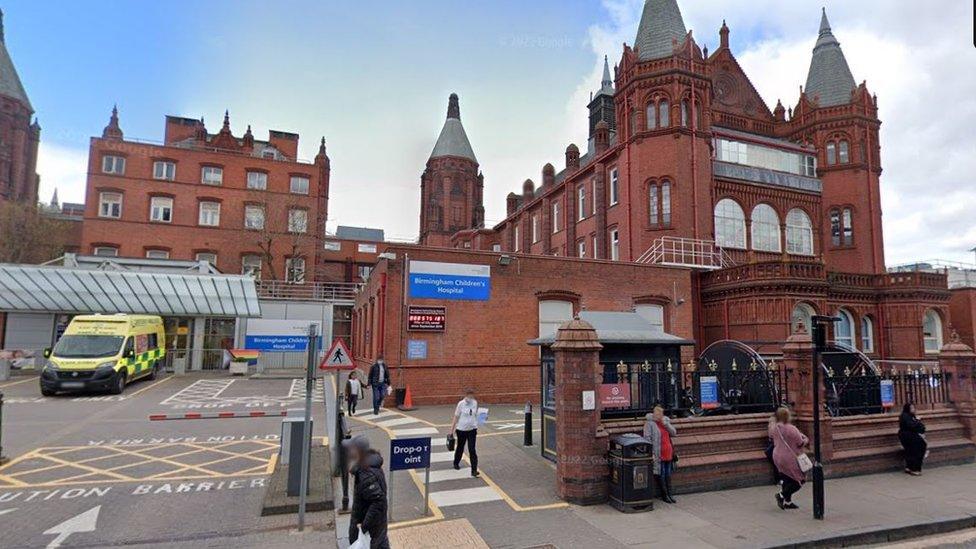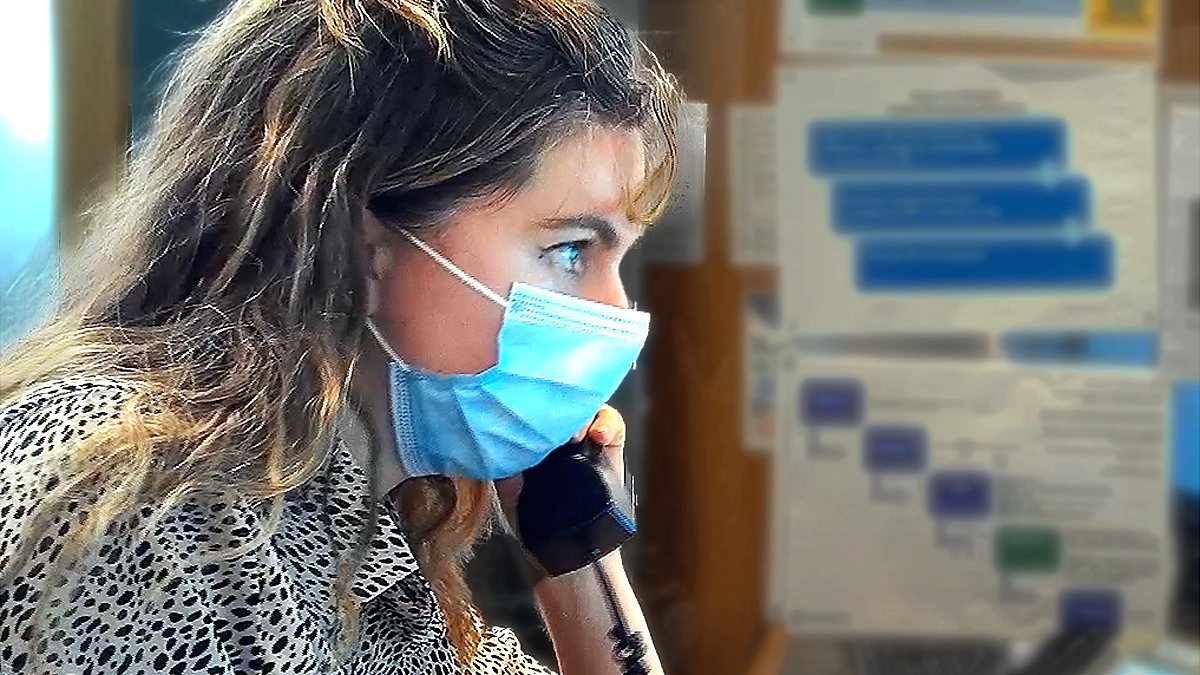Concern after unqualified medics given senior Birmingham hospital roles
- Published

The BBC has seen rotas showing physician associates being used in senior roles at Birmingham Children's Hospital
Medics who are not qualified doctors have been used in senior roles at Birmingham Children's Hospital.
Physician associates (PAs) have worked as the responsible clinician in the liver unit with a consultant on call.
The Royal College of Paediatrics and Children's Health (RCPCH) said more work was needed to define the role.
The trust running the hospital said the physician associates did not work in isolation and only did the role with the right level of experience.
Introduced in 2003, the PA role involved supporting doctors, external so they could deal with more complex patient needs.
Usually, physician associates have a science degree and do a two-year post-graduate qualification. They are not doctors and are not allowed to prescribe drugs.
The NHS plans to increase the number of PAs to 10,000 by 2037, according to the Department of Health and Social Care in July.
The role is currently unregulated with the government planning legislation for regulations to be introduced before the end of 2024.
PAs have worked at Birmingham Children's Hospital for 10 years but the BBC saw rotas which show them on tier two - normally a rota for senior doctors called registrars.
A presentation by a PA working at the hospital also outlined her job as reviewing patients, presenting patients in multidisciplinary team meetings and preparation of patients for transplant.
The Birmingham Children's Hospital liver unit provides specialist advice to hospitals across a third of the country and the hospital's NHS trust accepted the PA in the liver unit gave advice to doctors calling in to them.
'Hugely valued'
The RCPCH said it had heard the concerns of its members and the need for a clearly defined physician associate roles and training pathways.
The doctors' union, the British Medical Association, called for a delay on recruitment of PAs until the group was properly regulated and supervised.
The hospital's NHS trust said a physician associate would not typically go on the tier two rota for about three years.
Only after they displayed sufficient competency would they be allowed to offer advice to other centres, a spokesperson added.
PAs were not allowed to work unsupervised overnight and there were consultants on call at all times to offer advice, they said.
Dr Fiona Reynolds, the trust's chief medical officer, insisted the safety and quality of care offered to children, young people and families remained a priority for everyone at the trust and would not be compromised.
"Although small in number, [the PAs] skills and dedication to offering the best for our patients complements that of their colleagues in all fields - all of which are hugely valued by our trust," she added.

Follow BBC West Midlands on Facebook, external, X, external and Instagram, external. Send your story ideas to: newsonline.westmidlands@bbc.co.uk, external
Related topics
- Published15 July 2023

- Published13 June 2022
